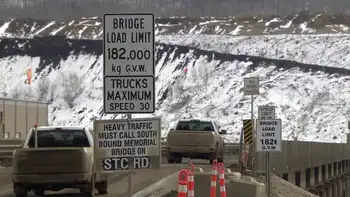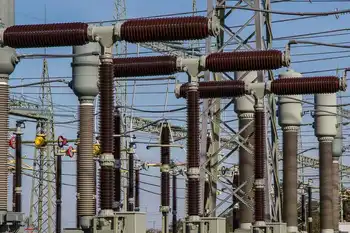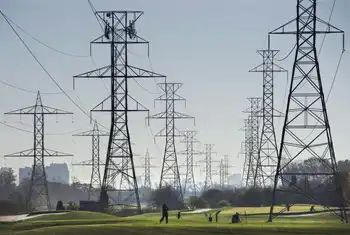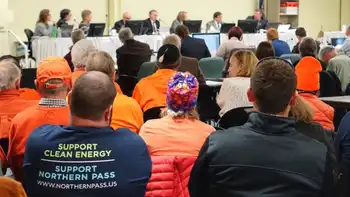Bill would study adding nuclear power to state's mix
House Bill 2737 and Senate Bill 6568 also would require an examination of advanced nuclear technologies, the reprocessing of spent nuclear fuel and a review of cost and safety issues associated with building new nuclear stations. A panel made up of legislators, representatives from the governor's office and officials from the nuclear industry would report back to the Legislature by Dec. 1.
The bills likely would draw opposition from environmentalists should they get so much as a hearing. "We don't think it's a good use of legislators' time or taxpayer dollars," Danielle Dixon, a senior policy associate for the Northwest Energy Coalition, said after a quick read of the bill.
"We'd rather focus on clean energy solutions." Even for a study? "Even for a study," she said. Supporters of nuclear energy are hoping global warming concerns fuel a resurgence within an industry that has been stagnant since the Three Mile Island accident in 1979.
Nuclear plants, unlike conventional plants fueled by natural gas or coal, do not emit carbon dioxide. The key hang-up remains how to dispose of spent nuclear fuel. While environmentalists want new energy needs to be met through conservation plus wind, solar and other forms of environmentally friendly power sources, others argue that won't be enough.
New baseload resources still will be needed, they say.
"I'm just trying to have a discussion about nuclear energy without the hysterics of the anti-nukes," said Sen. Jerome Delvin, a Richland Republican pushing the bill in the upper chamber. "We're going to need baseload generation. Why shouldn't nuclear power be a part of that?"
The bills in Olympia have drawn the signatures of two environmental champions. Sen. Craig Pridemore, a Vancouver Democrat, was named legislator of the year in 2006 by Washington Conservation Voters. And Rep. Brendan Williams, D-Olympia, had a 100 percent voting record with the environmental organization through 2006.
"If the objective of an environmentalist is to have a lesser reliance on hydroelectric power, where does that leave you?" Williams asked, noting that solar power hasn't yet matured and wind power has driven land-use disputes. "I think we need to keep our options open.
"As an environmentalist I recognize we have a future energy shortfall we will reach if we're not evaluating all the alternatives," Pridemore said. "I'm not endorsing nuclear by any means but I definitely think we ought to be talking about it."
The House bill is being sponsored by Fall City Republican Glenn Anderson, who polled his constituents and found surprising interest in nuclear power.
He expects environmental opposition and memories of the former Washington Power Supply System's failed nuclear construction program in the 1970s and 1980s might keep the bill from getting a hearing.
"Washington had its problem with WPPSS," Anderson said. "To say 'No, we're not willing to take a look' is not very progressive. To take new information off the table because we had a bad experience just isn't realistic."
Related News
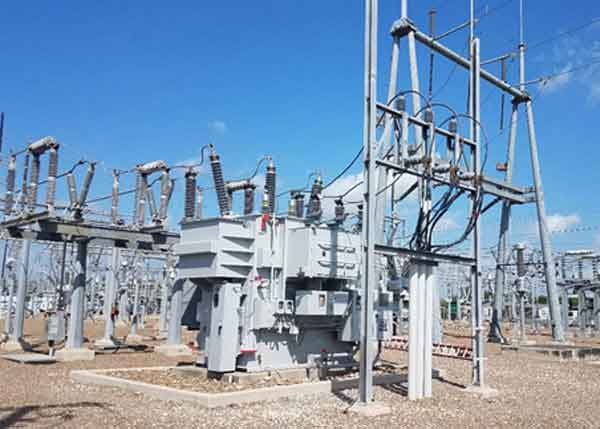
Russia Builds Power Lines to Reactivate Zaporizhzhia Plant
Russia is actively constructing new power lines to facilitate the restart of the Zaporizhzhia Nuclear Power Plant (ZNPP), Europe's largest nuclear facility, which it seized from Ukraine in 2022. Satellite imagery analyzed by Greenpeace indicates the construction of approximately 80 kilometers (50 miles) of high-voltage transmission lines and pylons connecting the plant to the Russian-controlled port city of Mariupol. This development marks the first tangible evidence of Russia's plan to reintegrate the plant into its energy infrastructure.
Strategic Importance of Zaporizhzhia Nuclear Power Plant
The ZNPP, located on the eastern bank of the Dnipro River…


